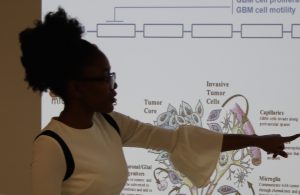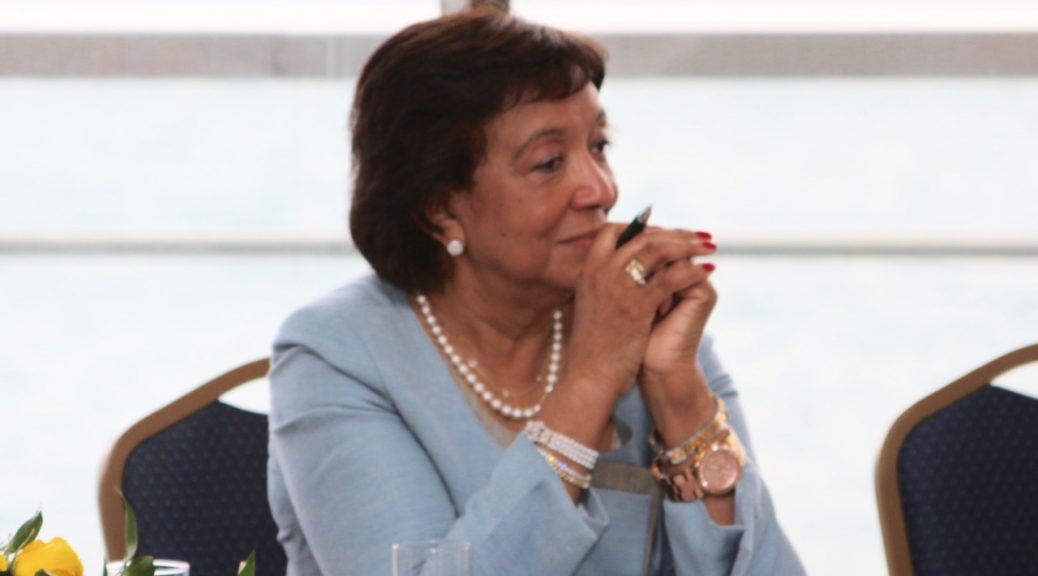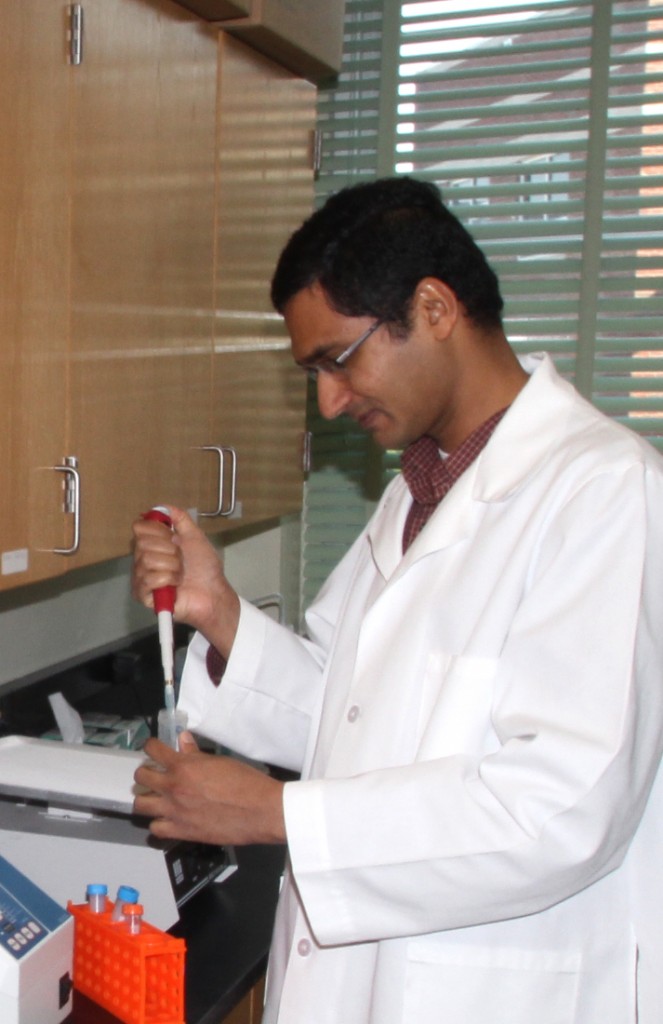NASHVILLE, Tenn. (TSU News Service) – People suffering from brain tumors could receive better medical care as a result of research currently being done by one of Tennessee State University’s leading medical scientists.
Dr. Quincy Quick, TSU associate professor of Biology, said by investigating the protein Microtubule Actin Crosslinking Factor 1 (MACF1), he hopes to help doctors target brain tumors using a precision method approach and thereby provide more effective therapy.

“All cancers are different,” he said. “Even though you and I may have a brain tumor, we would have different types of brain tumors because our genetics are different. Therefore, the genetics of our tumors would be different.”
According to Quick, if two patients had brain tumors and one patient’s tumor expressed the MCAF1 protein and the other didn’t, doctors would be able to use his research to better determine which type of therapy would best treat each tumor.
“Cancers have a lot of different components. You treat a tumor with radiation or chemotherapy. The reality is that some of those cells in the tumor would be killed, and some of them wouldn’t be,” he said. “The idea is how do you then identify one target that would kill all of the cells within the tumor population. MCAF1 would be thrust into that category as a potential target that could be inhibited and kill all the cells in the tumor and not just the subpopulation of those cells.”
According to brain tumor experts at the National Institutes of Health (NIH), there are more than 130 different types of brain tumors, and about 80,000 people in the U.S. are diagnosed with a primary brain tumor each year.
Currently, four students assist Quick with different aspects of the research project which began in August and is funded for four years by the National Institute of General Medical Sciences (NIGMS) in NIH.

Orica Kutten, a sophomore biology major from Ghana, said working in the lab with Quick has given her direction for her career path.
“Initially, I just wanted to go to medical school,” she said. “But now I am thinking of possibly going to research school and furthering my studies in cancer research.”
Kutten, a member of the TSU Honors College, said the lab work has introduced her to techniques she will need to know whether she attends medical school or graduate school.
“I love working in the lab with Dr. Quick,” she said. “He has been a great mentor, and I am very grateful for all the things I have been able to learn in his lab.”
Quick explained that the process for introducing new methods of treatment for brain tumors is slow in the United States, but patients diagnosed with these tumors can receive better medical care by asking their doctors more informed questions.
He advises those suffering from brain tumors to ask their doctor if they are using a precision method approach. Specifically, he said, patients should ask, “Are you evaluating the genetics of my specific tumor for me as an individual so that I can receive the best individualized therapy for me as opposed to taking the generic approach you would take with anybody that is characterized with this kind of tumor?”
Quick said the technology is available to make certain distinctions between the types of brain tumors, but often doctors don’t use it, and patients don’t know to ask the doctors to evaluate the genetics of their tumors so they can receive the best therapy.
“That’s a huge part of the problem,” he said. “You need to be informed about the technology you are asking about so when the doctor gives you a response, you can make an appropriate decision like, ‘Do I need to go get a second opinion?’”
The National Cancer Institute (NCI) has 69 designated cancer centers located in 35 states and the District of Columbia. To find a NCI-Designated Cancer Center near you, visit http://bit.ly/2jWBrVu.
Department of Media Relations
Tennessee State University
3500 John Merritt Boulevard
Nashville, Tennessee 37209
615.963.5331
About Tennessee State University
With more than 8,000 students, Tennessee State University is Nashville’s only public university, and is a comprehensive, urban, co-educational, land-grant university offering 38 bachelor’s degree programs, 25 master’s degree programs and seven doctoral degrees. TSU has earned a top 20 ranking for Historically Black Colleges and Universities according to U.S. News and World Report, and rated as one of the top universities in the country by Washington Monthly for social mobility, research and community service. Founded in 1912, Tennessee State University celebrated 100 years in Nashville during 2012. Visit the University online at tnstate.edu.



